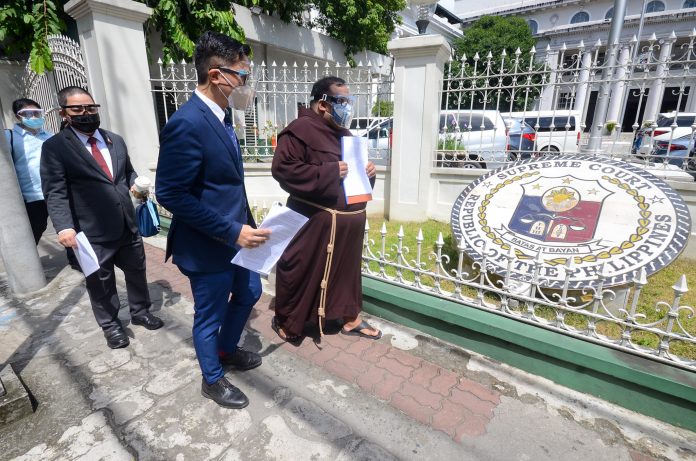The Association of Major Religious Superiors in the Philippines (AMRSP) submitted a petition before the Supreme Court on Wednesday, August 26, challenging the country’s new anti-terrorism law.
In its 33-page petition, the religious superiors asked the court to declare the new law “unconstitutional” because it allegedly “infringes on the free religious expression of the Church.”
“With the law’s broad and vague definition of terrorism the mission of the church is impeded and negatively affected,” read the group’s petition.
The religious leaders said the new law “interferes with the social doctrine of the Church, particularly its evangelization and missionary actions.”
“[It] affects not just the members of religious congregations, but more importantly, the Christian faithful as it is everyone’s duty to evangelize and do missionary works,” read the petition.
The religious leaders said the new anti-terrorism law affects the Church’s “fundamental right to free religious expression.”
The AMRSP also questioned the timing of the enactment of the law in the midst of the coronavirus pandemic.
The religious group said the government seems to be deaf to the public clamor for mass testing and relief for the most vulnerable, but instead, legislators focused on the law’s passage.
The group insisted that “terrorism is not our immediate concern,” but it should be the people’s health and safety.
“It is only through efforts for peaceful resolution of hostilities while addressing the root causes of such violent acts comprehensively, and not just militarily, will genuinely answer the roots of violence that is rampaging across our land,” said the church group.
The petitioners warned that the anti-terrorism law “can, and will be used to stifle dissent and curtail rights to free speech, to organize and form associations and to peaceable assembly in redress of grievances.”
They noted the red-tagging of church group Rural Missionaries of the Philippines, which is AMRSP’s oldest mission partner that is working with marginalized sectors.
The missionaries, along with rights group Karapatan and women’s group Gabriela previously sought the issuance of a writ of protection from the courts.
The groups were later sued by National Security Adviser Hermogenes Esperon for perjury for supposedly falsely claiming it is registered with the Securities and Exchange Commission.
The AMRSP said part of the Church’s mission is to reach out to the poor, and they do not distinguish who it helps out among them.
“[F]or as long as they are part of the marginalized sectors of society, helping the poor may be construed to mean giving assistance to ‘terrorists,’” the petitioners said.
The group said the anti-terrorism law affects the Church’s fundamental right to free religious expression because it is the duty of church workers to act as witnesses, and commit to the obligations that flow from the Gospel.
“To be a witness is to take an active role in the transmission of the faith in words and deeds. Being a witness is an act of justice that establishes the truth or makes it known,” said the group.
“Given this obvious burden that befalls the Christian faithful, it is but necessary for them to seek redress from this Honorable Court so as for them to continue with their duty and right to perform the social doctrine of the Church,” they added.
The AMRSP petition is the 30th legal challenge against the anti-terrorism law.
The Supreme Court earlier announced that it would conduct “oral arguments on the petitions” in the third week of September “at the earliest” and will issue notices once the date is finalized.
On August 24, the country’s Solicitor General, Jose Calida, filed an urgent motion seeking the cancelation of the oral arguments due to the “logistical restrictions and health threats” posed by the pandemic.









